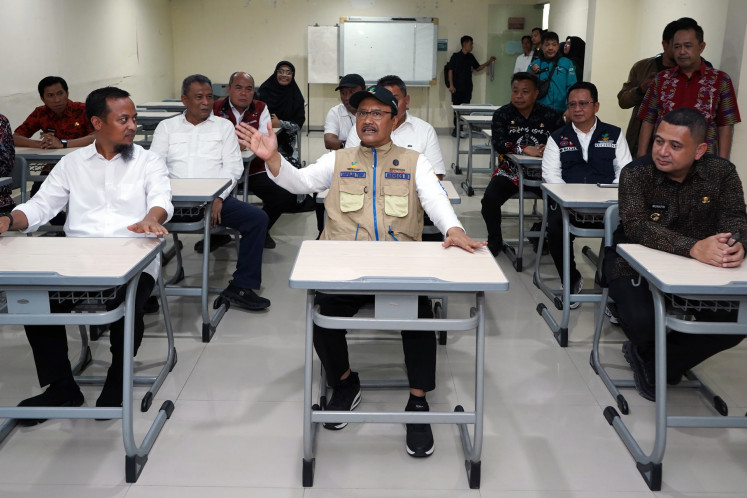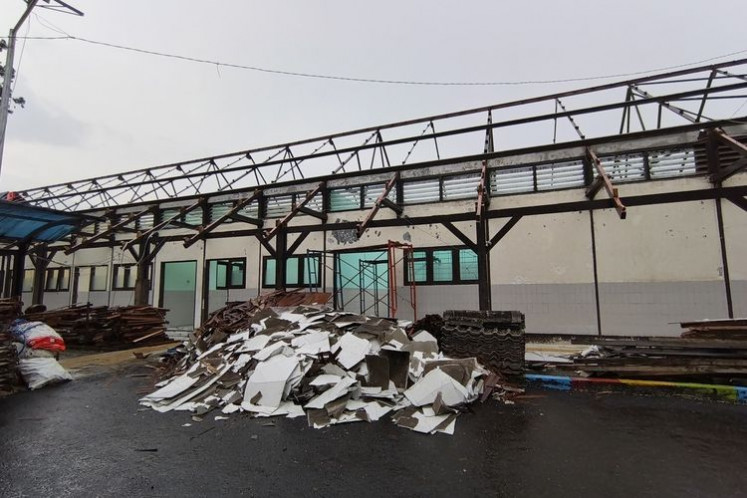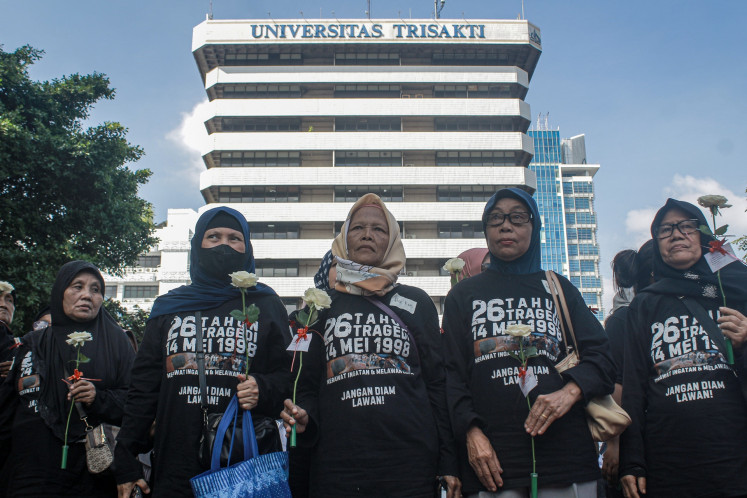Workers set up food sharing campaign
Dozens of employees working in the Sudirman Central Business District (SCBD) in South Jakarta have set up a campaign aimed at raising public awareness on food waste, while also providing meals for the area’s underprivileged inhabitants
Change text size
Gift Premium Articles
to Anyone

D
ozens of employees working in the Sudirman Central Business District (SCBD) in South Jakarta have set up a campaign aimed at raising public awareness on food waste, while also providing meals for the area’s underprivileged inhabitants.
The participants, who work in different companies in the area, gradually began to realize that the meals their offices regularly provided for lunch were far too large, leading to leftovers being thrown in the garbage.
In January, they started an initiative to set aside a portion of their meals and wrap them up to distribute among street people.
“Our offices are always full of food. If you think you can’t finish your meals, why don’t you share them with others?” said the community’s founder, Jordan Syein Sutoko, 23, who works for a prominent social media company.
Three months later, the group, called Brotherfood, has distributed more than 500 meal packages to underprivileged Jakartans — including scavengers and disabled people — who live on the streets.
Through its Instagram account @brotherfood_org, members share their activities in a bid to inspire more people to follow suit.
Jordan said that around 20 people had contacted him, including a group of students from a Jakarta-based university, wishing to set up a similar movement in their workplaces and schools. They asked him to share his experience in starting the campaign.
“We are not a group that receives and channels food. We are aiming to encourage people to share their food with the needy around them, instead of wasting it and exacerbating the city’s waste problem,” Jordan said.
“[Brotherhood] is not a [massive] campaign, but the effects could be huge.”
Jordan added that he hoped the Brotherfood movement could help solve two of the capital’s most pressing problems, namely poverty and waste.
According to data from the city administration, more than 378,000 people in Jakarta are living below the poverty line. They struggle daily to make end’s meet and fill their stomachs.
Meanwhile, of some 7,000 tons of waste produced daily in the city, around 55 percent is organic waste, including food, according to the Jakarta Environment Agency.
Not all of the waste can be treated, given the limited space for landfills, as well as the lack of technology to process it.
Many of the untreated waste ends up polluting the Jakarta Bay and surrounding waters.
While lauding the Brotherfood campaign, Jakarta Economic Affairs Bureau head Sri Haryati, who oversees food security in the capital, underlined the importance of maintaining hygiene and also ensuring that the food the group distributed was safe for consumption.
“It’s a good movement. We all already know that wasting food is not justifiable, so this could serve as a reminder,” she said.
However, it is also important to take into account the packaging of the food, particularly because certain foods require extra care, she added.
“It should be properly done and thoroughly checked to prevent the food from getting contaminated by dangerous bacteria. Also, remember that once the food is served, ideally, it should be immediately consumed because it might be nearly expired,” Sri added.









